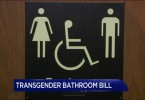Irwin Drucker has an overwhelming passion for the LGBT community that just won’t quit. Since the late 1980s, Drucker has been advocating for equality and gay rights, after first compelled to fight for inclusive at his former employer, IBM.
Drucker’s journey to advocacy and the work that he does for the betterment of our community is an inspiration to future advocates.
Who was your inspiration for becoming a gay activist? My first partner, Jerry. Jerry died of full-blown AIDS in 1991, at the age of 31. And I, like many people who were directly impacted by the epidemic in its early stages, had always felt that gays were treated as second-class citizens by the government. Had AIDS been an epidemic that mainly targeted middle-aged white men who played golf, I believe the government’s reaction would have been very different!
When did you first start advocating for gay rights? In 1989, when I was employed at IBM. IBM had recently acquired Lotus, which offered same-sex domestic partner benefits to its employees. So the question became did IBM extend that benefit to all its employees, or take it away from the Lotus employees. I had already come out to my co-workers and managers, and was asked to become a member of a small working group that eventually convinced the company leadership to implement worldwide domestic partner benefits at the start of 1997. And I’ve been consistently involved ever since.
Who are your LGBT heroes? Well, the easy answer would be Harvey Milk. And he is one of my LGBT heroes. But the heroes I really admire are the ones who stand up and fight in times or places where being out and gay isn’t that easy. And I don’t even know their names. But they are the ones who inspire me to keep doing what I do. The transgender teen in Harlem. The gay boy growing up in rural South Carolina. The lesbian in rural Texas. They are still the victims of social ostracism. Some are disowned by their families and thrown out into the street. Others are bullied every day at school, while principals turn a blind eye. And yet they go on. And they fight. And sometimes they die. They are my heroes!
What do you think is the next battle for our community after our win for Marriage Equality? I think the next critical battle will be for Economic Equality. I serve as a member of the Board of Directors of the National Gay and Lesbian Chamber of Commerce, and so I see first hand how many amazing small and medium sized LGBT-owned businesses there are in America. And yet, most of them are under-represented in terms of participation in the global supply chains of major corporations. In addition, at the micro level, in more than 30 states, it is still completely legal for an employer to fire an employee simply because that employee is LGBT. Or for a landlord to refuse to rent someone an apartment for the same reason. The list goes on and on. Until Title VII of the US Civil Rights Act of 1964 is amended to include LGBT, or until some other comprehensive anti-discrimination law is passed, we will still be fighting for full equality.
How do you feel about Marriage Equality being wiped from the law if a Republican becomes President? If such a thing were to happen, I would be outraged. And although we are certainly hearing a lot of rhetoric to that effect by the lunatic fringe (read: the current Republican Presidential contenders), I don’t think it’s likely to happen. All of the recent polls show that greater than 55% of Americans are in support of Marriage Equality at this time.
Do you believe that a Republican controlled White House and Congress can overturn Marriage Equality? Unless I’m mistaken, now that the Supreme Court has ruled that marriage equality is a civil right and any law depriving citizens of that right in unconstitutional, I believe that only the Supreme Court can strike it down. And that would require another case being brought before the court, and the Justices deciding that they were wrong in Obergefell v Hodges. I doubt this will happen. Look at Roe v Wade. In 1973, the Supreme Court ruled that a woman has a constitutional right to chose with regard to termination of an unwanted pregnancy. There have been many attempts by the right to bring a case forward to the court in an attempt to get a reversal, and none have met with success. And with the recent death of Valdemort (read: Justice Antonin Scalia) I think an effort to overturn Obergefell v Hodges would be extremely difficult.
How do you respond to the current Florida HIV/AIDS statistics? I think it’s tragic that the rate of new infections in Broward and Miami-Dade counties are the two highest in the country. There are a great deal of root causes behind these sad numbers. But the bottom line is that people have to get tested, know their status, share their status with their sex partners openly and honestly, and engage in safer sex practices. Period.
What do you think we can do as a community to lower our rate of HIV/AIDS infection? I think the thing we most need to do is to de-stigmatize HIV. I think the reason most people either don’t want to know their status, or chose to not disclose their status, is that there is still a great deal of stigma associated with being HIV positive. Just go on Grindr and the first thing you notice are all of the references to people being “clean.” Are HIV positive people dirty? OF COURSE NOT! But that’s the message we are sending when we don’t stand up and be inclusive of our HIV positive brothers and sisters, and not continue to treat them as pariahs.
What are your feelings on Truvada? I assume you mean using Truvada as PREP when you ask this question, and I think it’s awesome. I know there are some in the HIV prevention community who think that condoms are the only appropriate choice in prevention, and even call attention to the fact that Truvada doesn’t prevent the spread of other STDs. While that is undeniably true, I don’t think using condoms does either. And here’s why. When was the last time you gave or received oral sex with a condom? All of those other STDs are spread via oral sex and well as anal sex. Therefore, they are still being spread throughout the community. Given that fact, I think people should be free to choose between condoms and PREP without being stigmatized (there’s that word again) by being called a Truvada Whore!!
What do you see as our strengths in the community? Our community has tremendous strengths! The one that I see most often is the outpouring of generosity, both in terms of dollars and also care and compassion. I have been involved in organizing some of the largest fundraising events in our community, for The Pride Center, PYP Foundation, and others, and have always been blown away by how many people have always been there to help … with their time, with their creativity and talent, and with their hard-earned dollars!
What do you see as our weaknesses as a community? I think our community has two major weaknesses that prevent us from achieving our maximum potential. The first is egotism. We have to remember that we are a community and as a community we have to work together as a team. That means that sometimes you have to do something someone else’s way. Unfortunately, there are some who think their way is the only way, and in so doing, either intentionally or unintentionally erect roadblocks to our collective success. They lose sight of the bigger picture in their egotistical desire to do things their way. The second is insularity. Collectively, we are known as the LGBT community … but how many of us, myself included, really actively participate fully with all aspects of our community? And add to that the other racial and cultural differences in a community as rich as ours, and you begin to see that there are lots of threads, but they don’t always weave together. I have to give a big shout out to The Pride Center for doing a great job of creating programs and events that target all of the various elements …. now we have to figure out how to bring the threads together as one.
How do you feel about our up and coming LGBT youth? That’s actually an interesting question. I have mixed feelings, to be honest. On the plus side, I think it’s great that their generation, in general, doesn’t put labels on people’s sexuality. We all know that human sexuality is a spectrum, and each of us falls somewhere on that spectrum, from exclusively gay or lesbian, to bisexual/pansexual, to exclusively heterosexual. Today’s youth feel much more comfortable about exploring where they fit in, openly and honestly, without the need for labeling themselves. And therefore, they also tend to not be judgmental of their peers and the decisions they make. And I think that’s great. However, on the down side, I think that because they didn’t have to fight for their place in society, the way my peers and I (members of the “Stonewall Generation”) did, they lose sight of the fact things weren’t always as open and easy for us as they are for them. They take their rights for granted, and don’t realize how much we still need to fight for.







